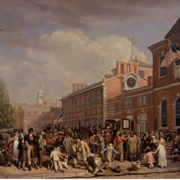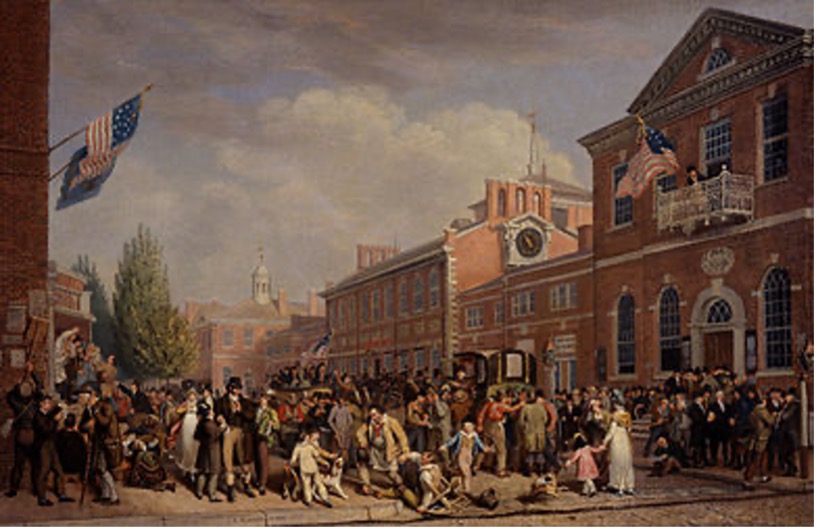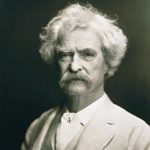Elections in Days Gone Past
You may have noticed that the 2024 presidential election has reached a fever pitch, so it is time to fill you in on the deep background of this all-American practice.
I come from a background that is drowning in history. I am the end product of pilgrim stock who landed in Massachusetts in 1630. I am descended from two of the witches executed at the Salem Witch Trials, a connection to which friends attribute my marketing predicting prowess. We have traced ourselves back to 17 ancestors who fought in the Revolutionary War.
The original John Thomas served on George Washington’s staff at Valley Forge and was responsible for building log cabins for the troops. We sued the government to overturn a portion of Andrew Jackson’s 1830 Indian Removals Act and won. We still know the names of all the slaves we owned because the wills were registered with the county courthouse. We fought on both sides of the Civil War.
So I feel well qualified to comment on elections past. In the late 18th century, only “men of property” were allowed to vote. You had to own 25 acres of land with a house, or 50 acres unimproved. Only about 5% of the population qualified. The great irony of the Tea Party movement, which wants to return the country back to our old ways, is that virtually none of them would have been permitted to vote back then.
The US was largely a rural agricultural country in those days. Voters often had to ride on horseback for days to vote at the county seat, frequently through frigid November snows. Some congressional seats were decided by the casting of a mere 10 or 20 votes.
Candidates greeted the hungry and exhausted travelers with feasts of venison on a spit and a concoction of dark rum, honey, and cloves, haranguing them with speeches while they ate.
Often, the candidates who put on the best spread and got the most voters drunk won the election. These frequently degenerated into drunken brawls, and more than one county courthouse was burned down. This led to laws mandating election “dry” days, which are still in force in many parts of the country today.
Look at the long lines snaking out of polling stations today, and citizens enduring eight-hour waits, I am reminded of how much the country has changed in 242 years.
But it is also clear how much it has remained the same.
Elections were Much Simpler in the Old Days




